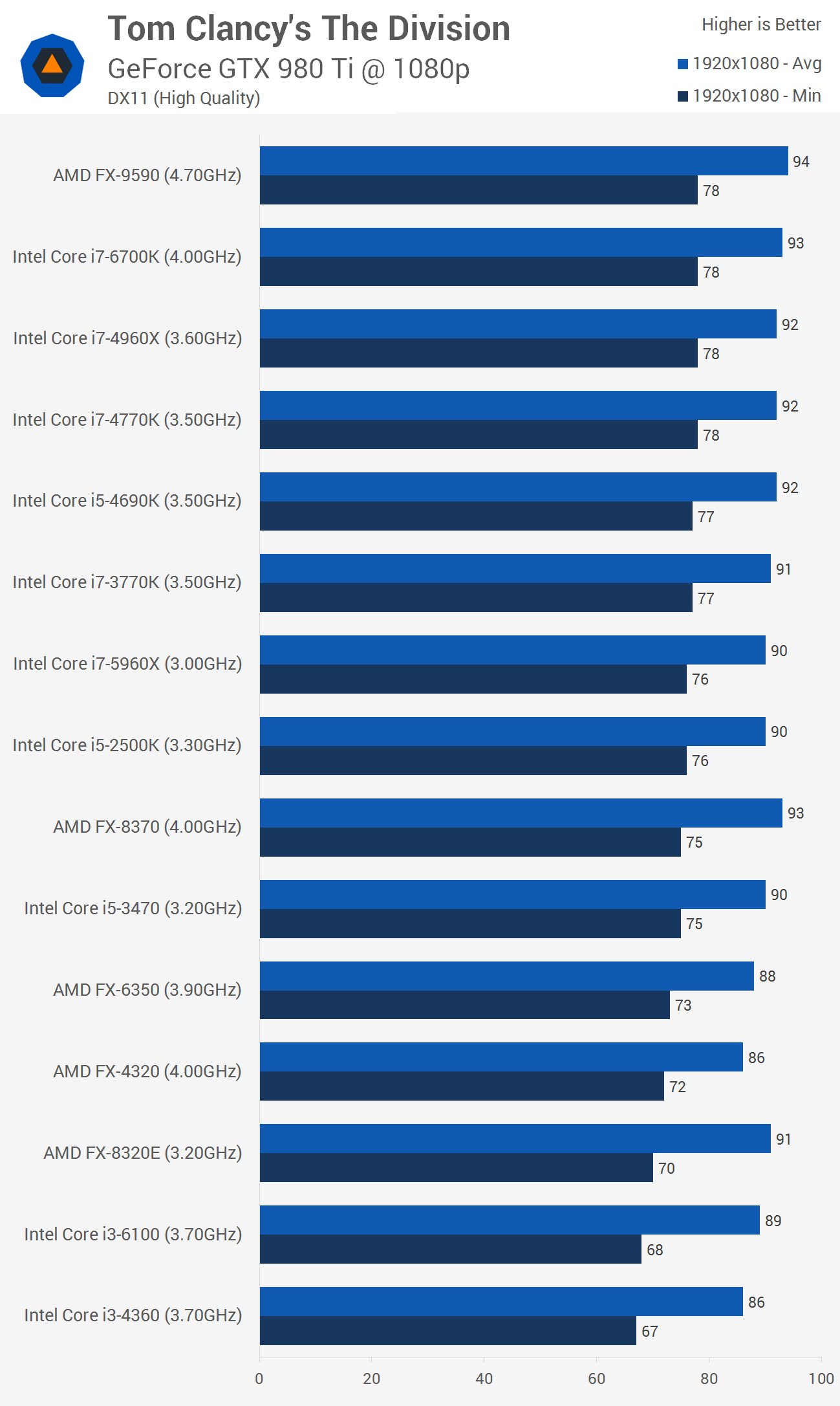NightAntilli
Honorable
It's true that before reaching Novigrad, the FX CPUs are consistently slower. But how relevant is it really? They never really dip below 60 fps. When the heavy part comes in, the heavy dips are mitigated by the FX CPUs, while the previously superior i3 is suddenly more of a bottleneck than an FX-6. So in that sense, the FX are still the more reliable performer in this game, in kind of a weird way. Doesn't reach the max performance, but doesn't dip to the minimum either.
Remember that I've been talking about the (near) future here. I haven't been talking about older games. Sure, in older games an FX CPU can give you 25 fps dips while you remain above 40 with even a Pentium. This will probably also continue in the very very near future, but it should slowly fade away where the roles switch. I'm saying should, because the future is not guaranteed. But the trend is there. Also, the FX-8 outperforming the fastest i5 is not going to happen. It's going to be on par with most i5 CPUs and slightly slower than the fastest i5 CPUs. i7 is far out of range of the FX-8 CPUs.
It's still safer to go for an i5 rather than an FX-6/8 right now. You'll get best of both worlds. i7 is obviously the best choice. The i3 vs FX-6/8 is debatable.
You're saying it's irrelevant to look at their future, but it really isn't. At what time before Witcher III did we see a CPU heavy part where the i3 performance drops and the FX keeps up with an i5? The future is quite bright here for the FX. This only happened just now, and the chances of it going more this way is increasing. I personally upgraded from a Phenom II X3 710 with the 4th core unlocked to my current FX-8 last year. From that perspective I'm already 'behind', but really, I'm not. I simply love to squeeze every little ounce out of my spent money, and I think the FX-8 will have a longer use for me than the X3 710 had. Remember that a stock FX-8 was achieving 75 fps on average in a 2015 game, and it's a 2012 architecture.
Remember that I've been talking about the (near) future here. I haven't been talking about older games. Sure, in older games an FX CPU can give you 25 fps dips while you remain above 40 with even a Pentium. This will probably also continue in the very very near future, but it should slowly fade away where the roles switch. I'm saying should, because the future is not guaranteed. But the trend is there. Also, the FX-8 outperforming the fastest i5 is not going to happen. It's going to be on par with most i5 CPUs and slightly slower than the fastest i5 CPUs. i7 is far out of range of the FX-8 CPUs.
It's still safer to go for an i5 rather than an FX-6/8 right now. You'll get best of both worlds. i7 is obviously the best choice. The i3 vs FX-6/8 is debatable.
You're saying it's irrelevant to look at their future, but it really isn't. At what time before Witcher III did we see a CPU heavy part where the i3 performance drops and the FX keeps up with an i5? The future is quite bright here for the FX. This only happened just now, and the chances of it going more this way is increasing. I personally upgraded from a Phenom II X3 710 with the 4th core unlocked to my current FX-8 last year. From that perspective I'm already 'behind', but really, I'm not. I simply love to squeeze every little ounce out of my spent money, and I think the FX-8 will have a longer use for me than the X3 710 had. Remember that a stock FX-8 was achieving 75 fps on average in a 2015 game, and it's a 2012 architecture.





